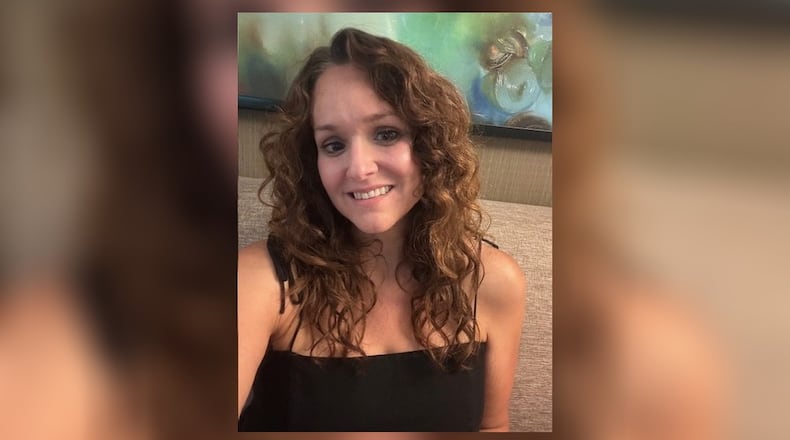After our family moved to Centerville, I joined a few friends in starting our own mom group, hoping to recreate the same sense of community I had found in Lebanon. Things got off the ground just as the pandemic rolled into town and shut everything down but we persevered and kept the group alive through online interaction and meeting as safely as possible. Friendships grew and it was wonderful to have that supportive community of moms in my new city.
Over time however, tension began to grow in the background. As the country grew more politically divided some of that negativity began to spill into mom spaces. Even though politics were never directly discussed on our private Facebook page we could no longer completely ignore the divide. Moms began wanting to discuss politics at events because so many of us felt concern for what was happening in the world and were being affected at home by the many changes being made. Opposing views posted on personal pages, shared articles or even casual comments outside the group sometimes crept into our interactions creating a bit of an undercurrent of awkwardness.
Recently this growing mom divide became visible in one of Centerville’s largest local online parenting communities. Due to its size of nearly 4,000 members, it is often the go-to place for everything from finding a reliable siding repairman to figuring out what your child should wear for spirit week. In recent years however, that group has also started reflecting the political and cultural divides playing out across the country. In my experience members who disagreed with admins sometimes found themselves unexpectedly removed from the group. I have never been one to stir the pot or rock the boat yet even I found myself caught in the crossfire. I shared information about another local parenting group and was ultimately removed without warning.
Conversations about controversial school programs like LifeWise or bullying incidents often sparked heated debates. Some posts were deleted and a few moms I spoke with shared that they even had trouble joining the group after attempting multiple times to be accepted. While the reasons given usually related to the large number of requests there was speculation about whether differing views played a role. At one point, I asked about local drag queen story times and that post was removed without any notification whatsoever. To me, it felt like another sign that certain conversations were less welcome, something other moms had also noticed. The moderators, while originally from Centerville, no longer live in the city or have children in the local schools. Combined with their conservative beliefs, that disconnect fueled additional frustration for some members who felt the group no longer reflected the community itself.
In response, a few moms have created new Facebook groups aimed at providing safe welcoming spaces for Centerville parents to connect without fear of being censored. These smaller groups are working to grow, hoping to restore some of the support and shared understanding that motherhood was once meant to provide. Yet even outside of these online spaces, the same divisions seemed to surface.
Over the summer, making new mom friends at the pool or elsewhere started to feel like walking through a landmine. Women seemed to be talking in code. Conversations started out normal enough about how the summer was going, what vacations they had planned and how the kids were doing in swim team but then someone would throw something out to test the waters. “I have just been feeling so stressed out since January, you know?” or “The news has just been nonstop craziness.” Nothing too specific but enough to see if the other mom gave you a strange look or offered a response that revealed where she stood.
Why had political values suddenly become something we could no longer ignore but rather something we had to figure out before forming friendships? The Republican Party of today feels very different from the era of George W. Bush Jr. He campaigned on being a “compassionate conservative” and promoted policies like education reform, global health and AIDS relief, immigration reform and Medicare prescription drug coverage. Of course, he also led us into a war over weapons of mass destruction that were never found, a mistake that cost countless lives. Yet even then, the political debates felt more about policy differences. In today’s political climate, those debates have escalated into battles over basic human rights and even the fundamentals America was founded on. I am no longer simply looking into another mother’s eyes and seeing understanding. Too often, I find myself playing detective, searching for signs that we are on the same page in our beliefs.
It is striking and honestly a little heartbreaking that moms can no longer easily find connection in something as universal as motherhood. Once playdates and online mom groups were places to swap parenting tips, vent about sleepless nights and celebrate small victories. Politics rarely came up and even moms from very different backgrounds could relate over the shared challenges of raising children.
Today these spaces reflect the same divides rippling through our country. Moms are the barometer of our communities, feeling the tensions, noticing what matters and sensing when something is off. Our children are watching how we navigate these divisions, learning from our words, our actions and the communities we build. And when it seems that our neighbors or loved ones are under attack, we feel a deep responsibility to stand up for them, even when it pulls us outside our comfort zone and away from that sense of shared connection with other moms.
If even the spaces built to nurture and support are splintering along political lines, what does that say about our ability to come together on anything else? If something as universal as the experience of motherhood can no longer be common ground, where will we ever find our common ground?
Nina Weierman is a freelance writer and mother living in Centerville, Ohio.
About the Author
